You’ll find a cobbler in Chiang Mai by going north along Route 106, which follows the river. Turn right on Kaew Nawarat Road and keep walking about twenty minutes. He’ll be on the left side of the street and he’ll patch up the two holes you’ve worn straight through the soles of those disgusting leather boots you keep around for some reason.
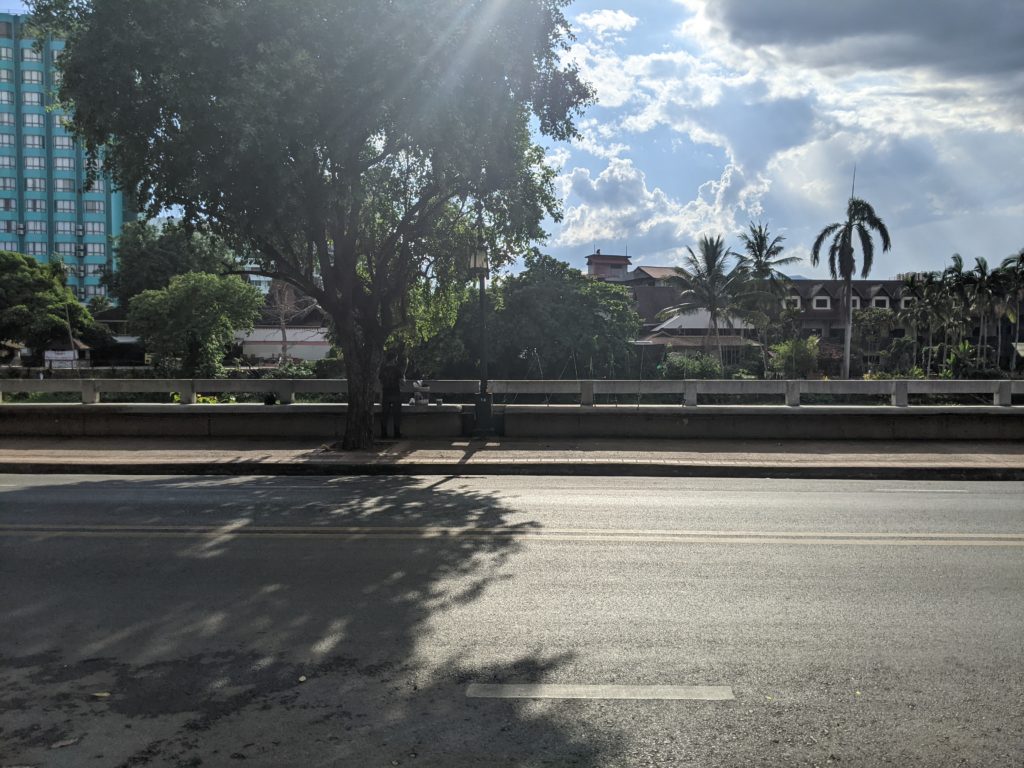
And don’t bother looking for another cobbler online. You know better than that. Too many times in Thailand, China, or South Korea, online searches in English have led you down wrong roads towards shops that no longer exist.
Just go with the suggestions you got from the Chiang Mai Expats group on Facebook because that’s more likely to get up-to-date information. You posted a request for local cobblers. You even included a picture of your Swiss cheese boots with sun shining through them.
A boot with superb ventilation.
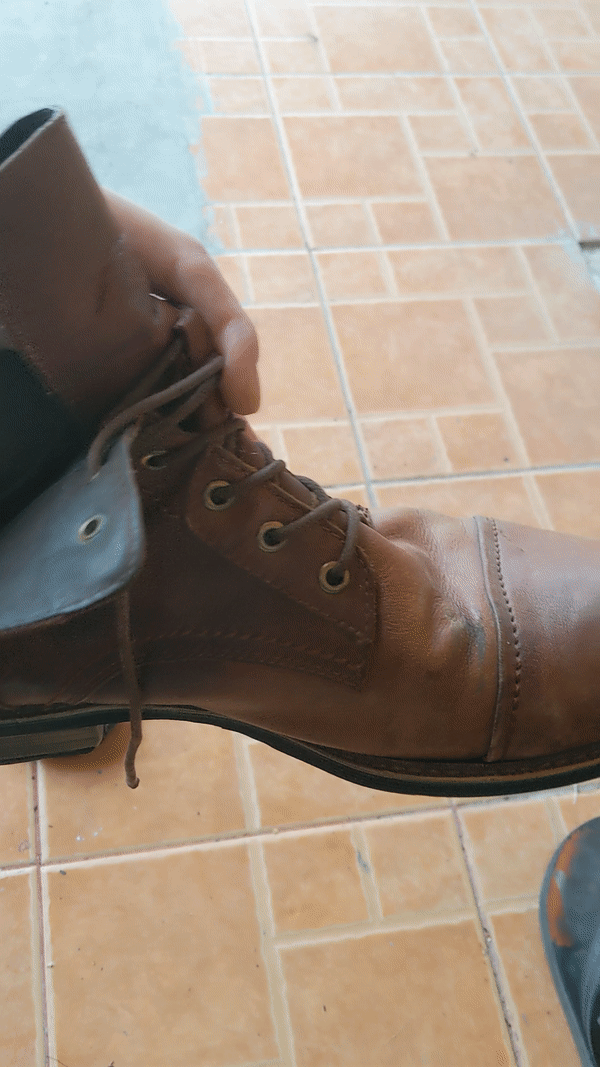
Your post got four replies. None of them explained why they recommended their cobbler, nor do you know enough about cobbling to make sense of it even if they had. You go with the shop closest to you.
The recommendation is one line. It reads: Great place 4or 5 doors up from burning ( the mx shop )
Walking along Route 106, you wear your only other pair of shoes and hold your tattered boots in hand.
The two-lane road winds along the path of the slow-flowing river. Fishermen cast lines from the sidewalk during the day. At night, youth will line the bank as they drink Chang beer and talk with friends. I suppose the fishermen aren’t there anymore because the fish have all gone to sleep, but I don’t know if fish sleep. Do you know?
Route 106 eventually splits from the river and is now lined on both sides by independent restaurants, bars, and souvenir shops. As you walk, you enjoy reading the slightly-off English names they come up with. You figure they make names in English because they hope their cute name will attract some developed-nation tourists with their developed-nation cash.
This one is called “Drink First Love Second.” That one is called “Thank God For Wine.”
You even see a few boutique hotels here and there, but they’re all boarded up. It’s 2021. A fifth of Thailand’s economy relies on tourism, and there’s a global pandemic. It’s not ideal.
Here’s a boarded-up and shut-down boutique hotel. An empty, riverside cafe with the lights off. A closed souvenir shop where passersby have written finger-painted messages in the thick dust of its unkempt windows.
You feel uncomfortable walking by those boarded up boutiques with your pasty white face. Should you have stayed there? Could you have saved them?
There’s not many of you foreigners left in Thailand by mid-2021, and those of you who stay are here for no good reason. You’re not the tourists holding up the economy by spending lavishly on your two week adventure of a lifetime. You’re not tourists at all. You’re the expats.
Some expats are retirees, here because this developing nation takes better care of them than their home countries. Some expats are more like sexpats, spending all their time and money at the girly bars and feeling amazed at how they’ve suddenly become so interesting to women. Some expats are teachers, having a paid gap year by exercising the highly marketable skill of fluently speaking their own native language.
Many of the expats are like you. The remote workers. Some of these remote workers have got it made. They’ve got actual jobs, making actual money. They could be anywhere, but they chose this place.
Other remote workers are more about the remote part than the work part. They’ve mistaken their side hustle for a career, and that fantasy is only possible with Chiang Mai’s low cost of living.
And you? You grinded to establish a portfolio and clients. For years, you worked your day job, then came home to write affiliate blog articles and corporate social media posts.
This all started at a mechanic shop in California in 2014. You were an English language teacher who was too broke to buy a car that didn’t die every three months, but also too broke to afford the repairs.
You knew you could make more money by moving out of teaching and into the company’s administration. You even had an interview once, but you didn’t feel that route was for you. What did you do instead?
Sitting in that mechanic’s waiting room, surrounded by old editions of The New Yorker, you decided that writing is the only thing which you both enjoy and have talent for. You resolved to make money writing, though you had never done so before.
The first time a publication accepted an article of yours was in 2015. There was no pay, but you didn’t care. You kept refreshing the page to see your name on the “About the Author” section. That grew into writing for rates way below minimum wage. You were building your portfolio.
Then you began earning enough to buy dinner. Then to pay for rent. By trial and error, you learned how to not get scammed. How to find clients. How to keep them.
Now it’s 2021, and look at you—sitting there tippity tapping away at your Chromebook on a balcony in Thailand with a glass of whiskey on the rocks. This freelance writing is your sole income now. You’ve had a few good months. You started to think that maybe you were making it. Maybe this is a career.
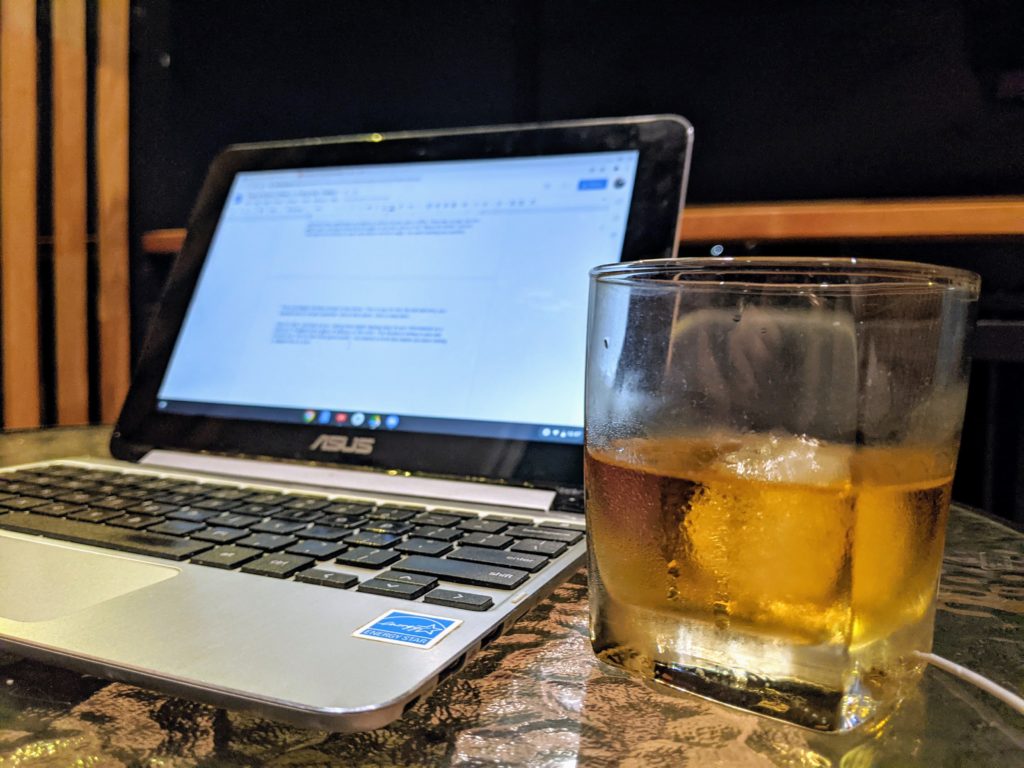
Then you picked up your boots one evening and saw two holes large enough for a toe to slip through.
People who are making it don’t have holes in their boots.
It was raining, but it was too late to find a cobbler that day and you had to get groceries. As you walked, you felt each step splash water up through your boot, soaking your socks.
And you think you’re making a career out of your passion? This only works for one reason, and you know it. You’re exploiting this place for its low cost of living. You’re not here to learn the language or appreciate the rich culture. You’re here for the cheap rent and the two-dollar dinner.
You’re here by choice. That choice was unavailable for the folks whose livelihood went down the drain with that blockaded boutique hotel.
No, you could not have saved that boutique. They didn’t create that cute English name for you. Take your rotten boots and walk on. Go play make believe with your creative career. You phony. You leech. You broke-boot, fake-career, expat poser.
You walk along the narrow shoulder of the road, regularly looking behind you to make sure the passing cars won’t clip you with their side mirrors.
Passing traffic now seems aggressively close. Maybe it’s the narrow roads in this section of Route 106. Maybe it’s because everyone can read your thoughts and they now realize how you renounced more opportunities than they ever had. You may never know, but you manage to continue without getting smooshed.
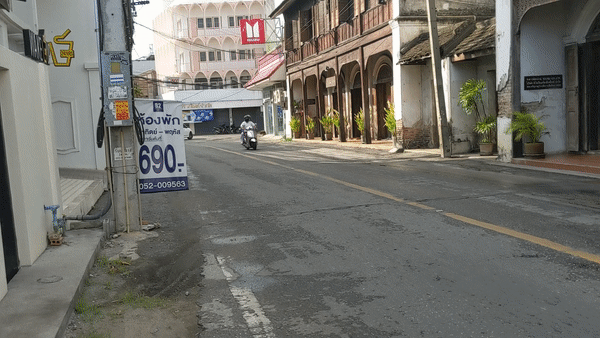
You reach the turn out of Route 106 and into Kaew Nawarat Road, and you may as well have stepped into another country. Gone are the cute cafes with English names. One turn away from the river, and this is no longer Thailand for the tourists. This is Thailand for the Thais.
The street is lined with shops for stationary and toiletries. A school. A PVC pipe shop. A hospital. A fruit vendor selling fart-smelling durian.
This street is for practical things. This is real life, now
You wander into a section of scooter repair shops, and you perk up. The Facebook suggestion had said the cobbler would be a couple doors down from a motocross shop called Burning, and your phone’s map says that should be here.
None of the shops have a banner that says “Burning,” but you’re sure one of these must be it. The cobbler must be five or so shops down the road.
As you walk, you peer into each shop, hoping to see a place filled with shoes. Or perhaps someone holding a shoe.
You walk five shops down and see nothing. Ten more shops, but still nothing. Twenty shops. Nothing. Twenty more. Nothing.
Well now you’re lost, aren’t you? Now you’ve got no purpose for being here. Now you’re just some outsider going nowhere with an old pair of broken boots.
Dripping in sweat and unsure what to do, you rely on old habits. You pull out your phone and look up “cobbler.” It pings one nearby place called “Shoe Repairman on the Side of the Road.” It’s not a cute English name, but it gets the point across.
You realize that the Facebook comment you’ve been following may have had a typo. Instead of four or five doors down, he may have meant four or five blocks down. You’ve got some more walking to do.
You pass through an informal, outdoor food court. It seems to be an abandoned building where street food vendors have set up permanent shop.

Passing through, everything is fascinating. The food people prefer, the way people interact, the manner in which the shops advertise. You wonder if each food stall owner wants to someday grow into a restaurant, or if they want to keep the business simple and retain their mobility. Like you do.
This is the part you enjoy about living abroad. You don’t learn about a culture by taking day trips to snap pictures of historical sites. Instead, you learn about a culture by going where regular people regularly go. And by going regularly.
Your favorite tourist site is visiting the same shopkeeper every day for a year.
This is how you learned that the owner of the family-run grocery store in China sometimes wants to take a break, so he lets his seven year old daughter run the register. This is how you learned that the convenience store owner in South Korea works so late and lives so far away that he sleeps on cardboard boxes in the shop’s back office.
A few more minutes of walking and—on the other side of the road—you see a sign with shoes. It’s not even a shop. It’s a man sitting on a stool next to a stall on the sidewalk. He’s cutting out shoe-sized shapes from a rubber material. He’s got a dog that looks like it’s fourteen years old and hasn’t had a bath in as many years.
You instinctively turn around and begin to walk away. But to where? You chose to come to this country. To this street. To this stall with a sign and a dog. You can walk home now, but you’ll still have holes in your boots.
You go to the shoe repair man on the side of the road. The cobbler doesn’t speak English and you don’t speak Thai. But cobbling is a straightforward business. You show him the holes in your boots, and he gets the idea.
With pen, paper, and internet translation, you work out a price and a time to pick them up tomorrow. He quotes you 300 baht, or roughly $9 USD. You have no clue if he’s quoting you a fair price or a foreigner price. You don’t worry about such things anymore. It’s the tax of living in a place with two dollar dinners.
You agree and leave your boots with him. You don’t shake hands. It’s a pandemic. You smile through your mask and hope it shows with your eyes. This was an enjoyable encounter. He seems to have enjoyed it as well. You can see it in his eyes.
Look at you, walking back to your apartment and feeling fine. You had a moment, didn’t you? Sure, it didn’t result in an Instagrammable picture of some temple or tree or whatever. But you experienced an everyday event in another culture. It’s not much, but it is one more data point to add to your understanding of what it is to be human on Earth in 2021
The next day, you make the walk again. Up the river past the fishermen, past the cute cafes, past the fart-smelling durian shop, past the impromptu food court, and back to “Shoe Repair Man on the Side of the Road” in Chiang Mai, Thailand.
The cobbler hands you the boots and writes down “400 baht” ($12). You figure maybe he’s trying to get that extra foreigner money or maybe something in the process cost extra. Looking at the boots, you see the job was done well. He even restitched the back of the boot.
You don’t mind either way. You’re happy your boots are repaired and you hope this gem of a man stays in business. You hand him 400 baht, plus a 50 baht tip as a sign of good will. You say one of the few Thai phrases you know: “khaawp khun krab.” It means “Thank you.”
You seem happy with the experience. He seems happy with the experience. You’re not sure about much else, but you believe he’s happy that you’re here.
By now, it’s been nearly five months since “Shoe Repair Man on the Side of the Road” fixed your pitiful boots that you love. The soles and stitching still look great. So, that’s how you can find a good cobbler in Chiang Mai, Thailand.
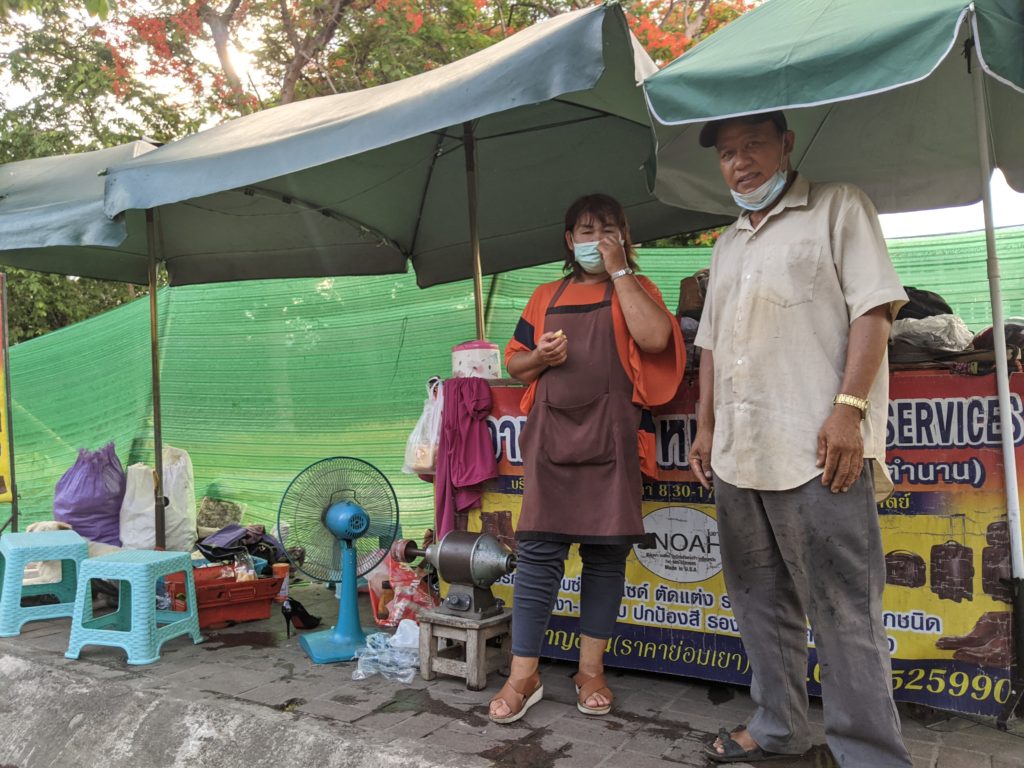
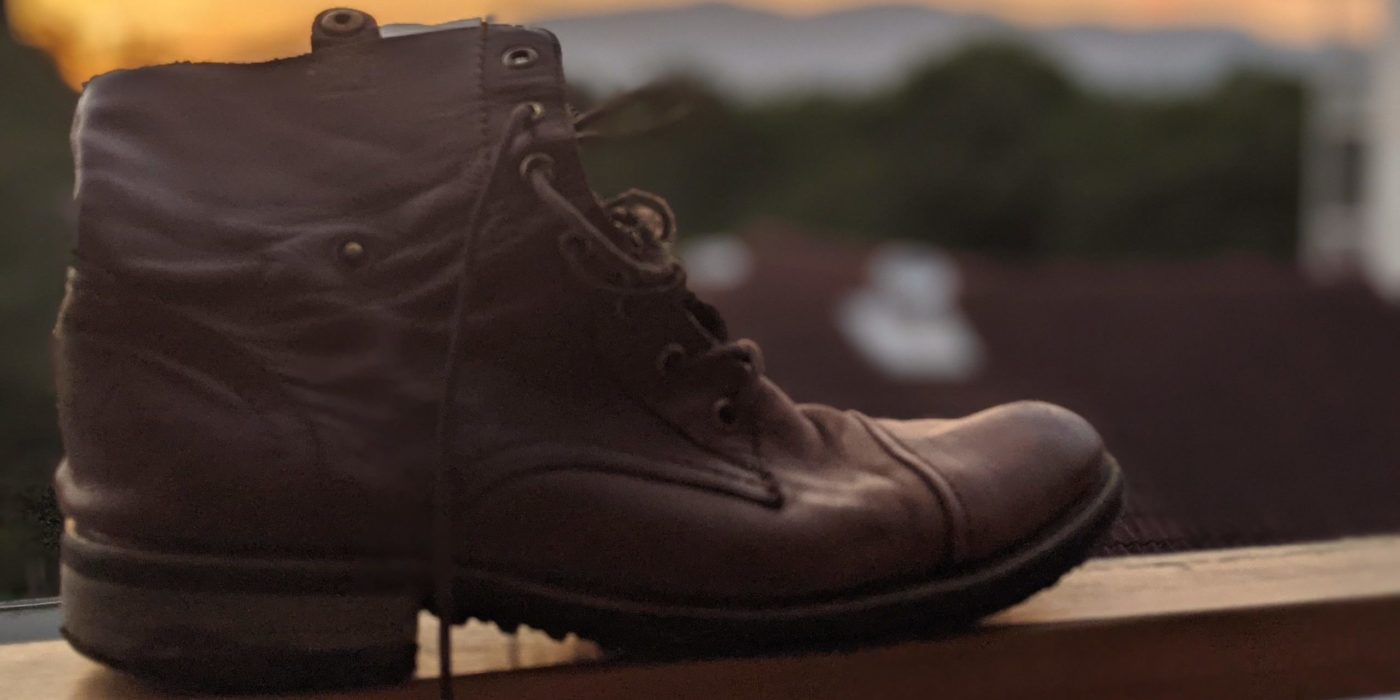
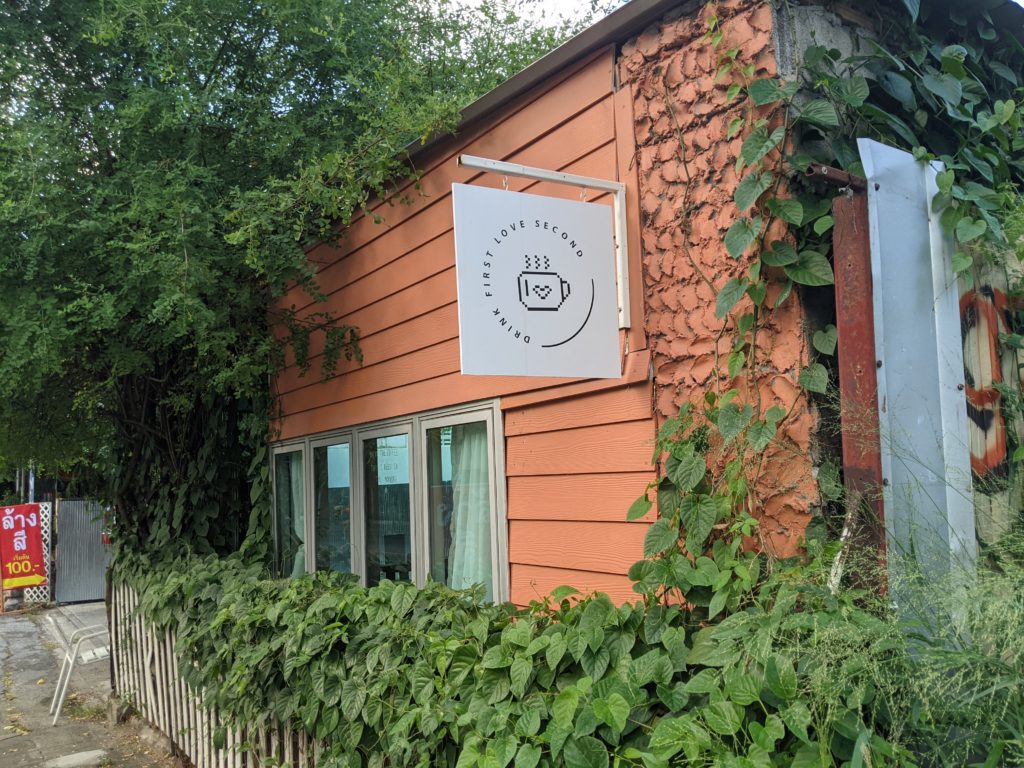
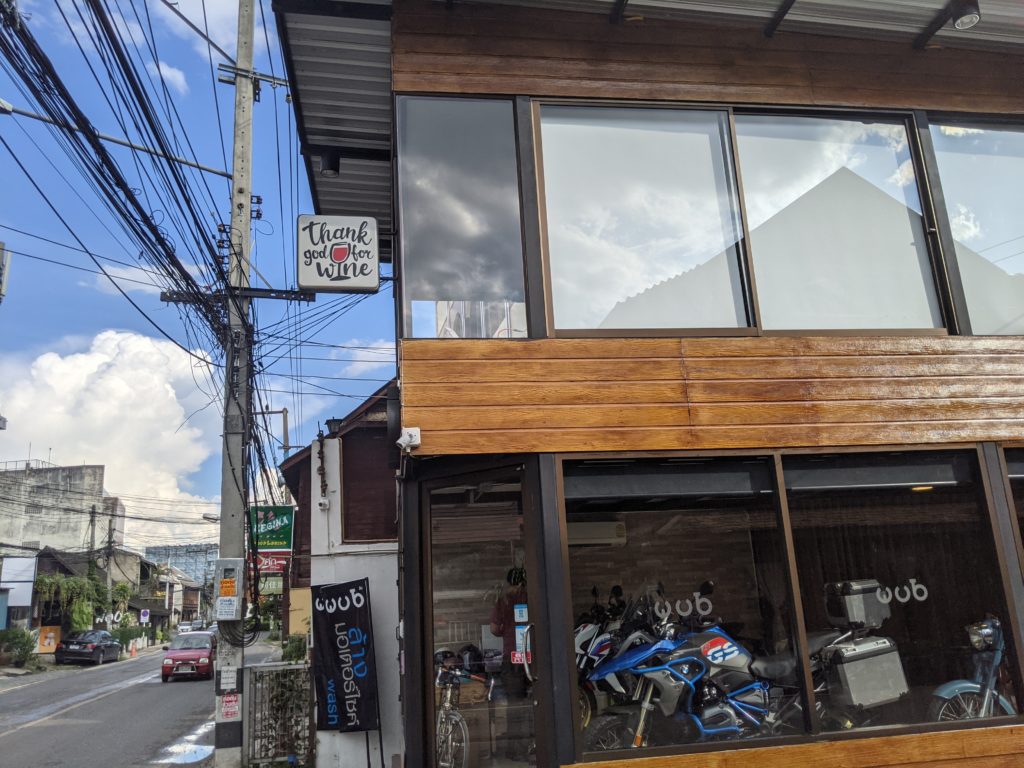
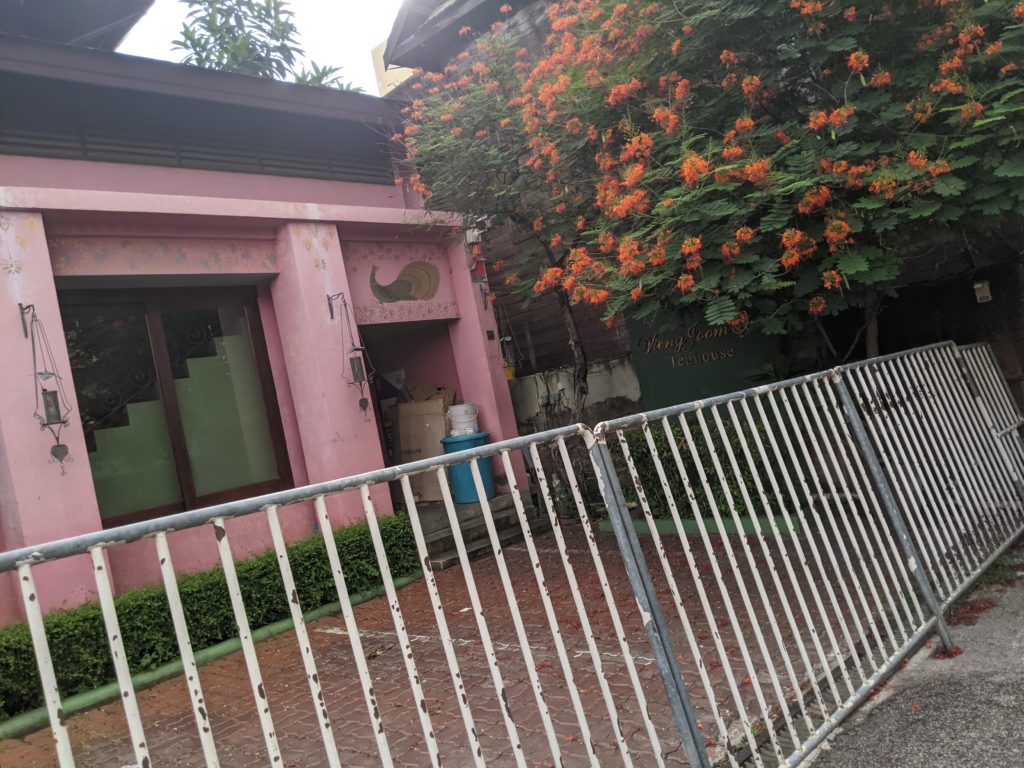
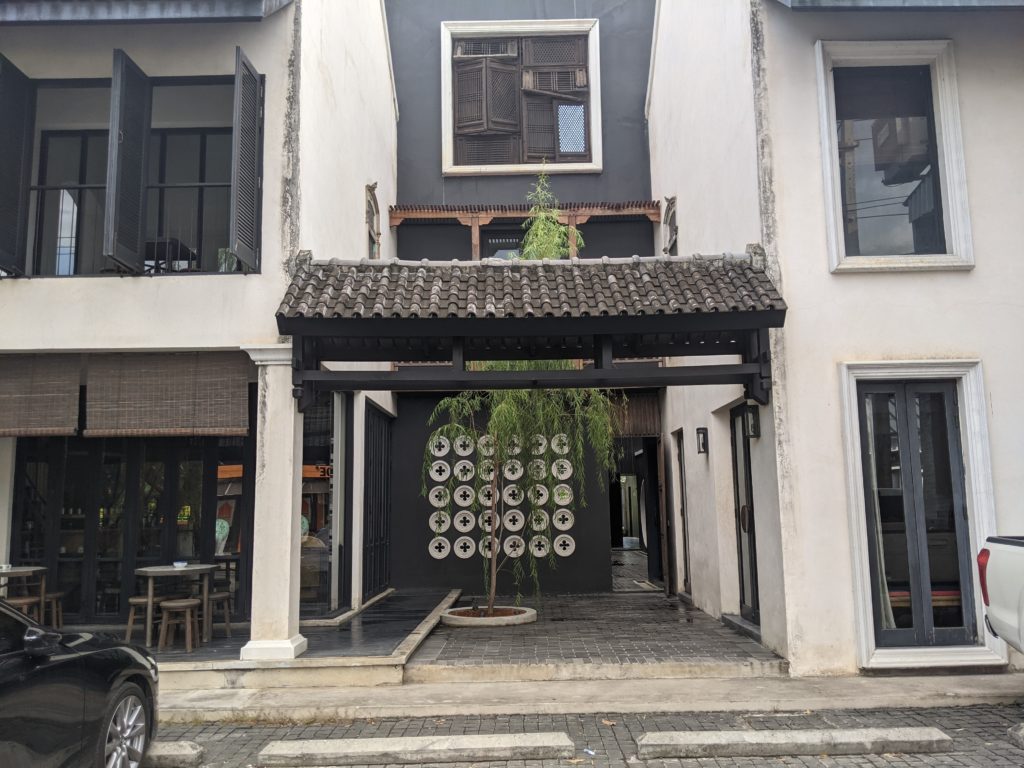
But does he make shoes as well? It’s a dying art.
Yeah, the shoe repairman on the side of the road did a great job. Smitty spent his whole life throwing shoes out when they showed the slightest problem. But these boots, he likes them. He’s decided he’s going to find ways to keep them around for a while.